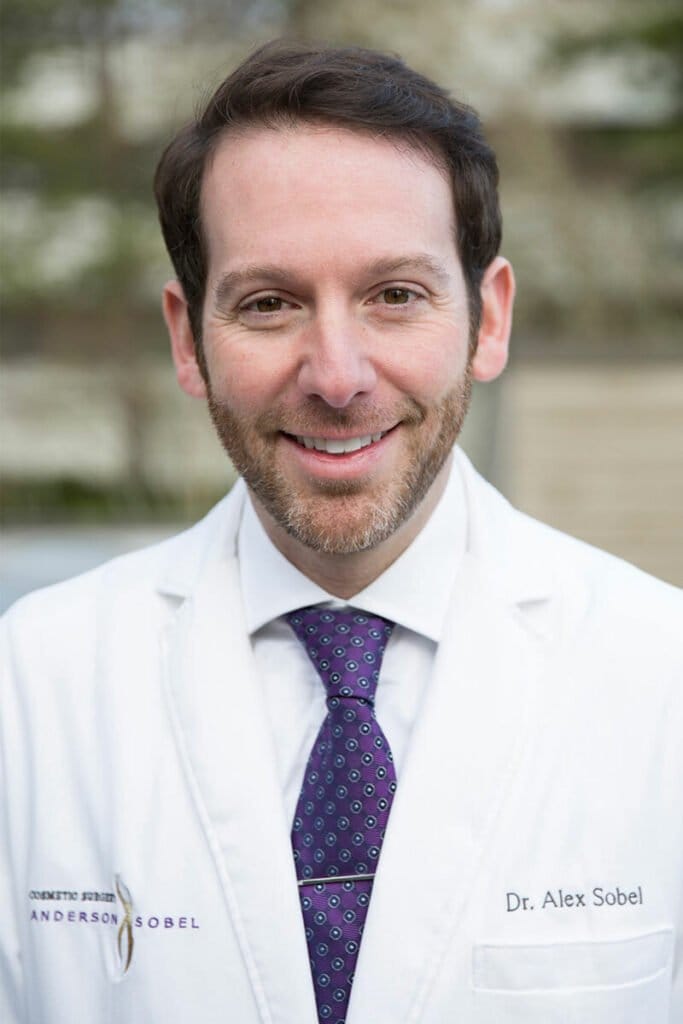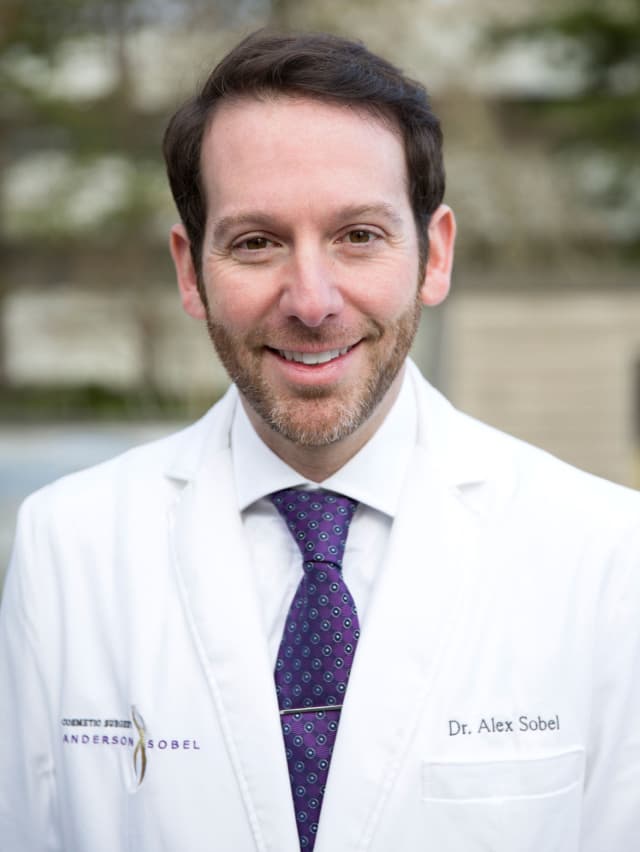Getting to Know Dr. Sobel Outside of the OR, Part 1

Patients of Anderson Sobel Cosmetic Surgery know Dr. Sobel by his kind bedside manner, surgical ability in the OR, and support during recovery. We recently sat down with Dr. Sobel to hear more about his background, passion for cosmetic medicine, and what his life is like when he takes off the doctor’s coat.
In this installment, learn more about how Alexander Sobel became Dr. Sobel.
What drew you to the field of medicine?
The science of medicine was an academic black hole for me, and I could not stand to be on the outside looking in. I realized this in high school and worked to create the opportunities that would allow me to enter the doors of a medical school. College presented a challenge insofar as I had to select fields of study to keep me occupied until I had the bachelor’s degree requisite for admittance to medical school. Hopelessly unable to choose, I completed two majors, in music and physics, and a minor in chemistry. This was the end result of learning the policy of the college that allowed no more than two majors and one minor. With my hopes of a third major in chemistry and a minor in mathematics dissolved, I found the time to consider my future as a physician.
Though I understood my academic salad bar approach to premedical education would provide me with an unusual and attractive background, I had no reason to believe that I would like medicine. Despite multiple visits to the clinical practice of an array of physicians and surgeons who were exceedingly generous as to endure me, I could not be sure I was going to enjoy the practice of medicine. Simply unable to figure it out, I started medical school upon the completion of college.
Mercifully, I was completely enamored by and absorbed with learning medicine. By some even greater and unexpected fortune, at this field of study I found myself reasonably talented. I found such a thorough joy in the growth of my fund of knowledge, I knew I would be fulfilled for a lifetime.
Considering the above, I probably would have been happy in medicine, but the final stroke which would complete the canvass for me I found in humanity. Of the endless examples I accumulated during internship and then residency, I’d be content to share one story. Informing patients of their cancer diagnosis was, unfortunately, not an uncommon task with which I was charged. This time would be different. I found my patient on a bench in front of the hospital late that evening, leashed to an IV pole, dressed no more fully than a hospital gown, sweatpants, and slippers could afford, and quite engaged with a cigarette. In that moment, I understood that I would be the only one to ever tell her she has cancer; in her service, first, I learned I need to give her the diagnosis better than anyone else would. Apparently, my self-inflicted admonishment was armor sufficient to withstand any urge to judge her for smoking while we spoke. I sat on that bench with her for several minutes waiting for questions that would not come until the next day. Hence, my second lesson of the evening was that to be a good doctor, sometimes you need to not be a doctor.
In summary, I can’t decisively identify what drew me to medicine. However, I know now, adamantly and free from any uncertainty, that it is the pursuit and teaching of academics, clinical practice, and humanity in caring for patients that will keep me from ever truly retiring.
What do you love most about your work?
I’ve had several jobs in my life: newspaper delivery, light construction, factory work, and even canvassing for a public interest research group. However, there are three things I have done for which I have never used the noun, “work.” These consist of teaching, musical performance, and the practice of cosmetic surgery.
For the purpose of the proposed question, I do regret the form of it as the reason I love my work so much is that there are so many reasons for so doing. Nonetheless, forbearing the urge to pour the full quanta of these onto this page, the reason I enjoy my work so much is, simply, that it is hard.
Cosmetic surgery is hard for a variety of obvious (and less so obvious) reasons. Among my favorite reasons has to do with Dr. Joseph Lister, the father of modern surgical asepsis and of ListerineTM fame. Of his basic surgical principles, one stands out to me as a cosmetic surgeon: Do not close wounds under tension. Yet the field of cosmetic surgery protests that our patients want lifted faces, tight stomachs, full breasts, and taut arms. Another complexity unique to cosmetic surgery is that skin can be entrusted to do only one thing: age. In its resolute march to become thin, irregular, and lax, our patient’s skin, and how it will affect their future results, compels our understanding and humility in all aesthetic endeavors.
Further, each patient is different. These disparities extend far beyond those that might distinguish among expectations for healing, candidacy, and technical considerations for intraoperative maneuvers. An example among these is anticipated satisfaction. When considering one of my favorite procedures, the facelift, before and after photos for three different patients demonstrate a consistent, very effective, and pleasingly aesthetic result. However, these photos also represent distinct archetypes of patients: those that are 1) exceedingly happy, 2) pleased but had hoped for something more, 3) exceedingly disappointed. Despite a constancy in result that would be obvious to both casual and discerning observers, it is the job of the cosmetic surgeon to identify, in advance, the third group. This is for the reason that the procedure, no matter how professionally performed, will deliver results of which the members of group 3 will never enjoy. This is, truly and not infrequently, very difficult.
Thus, it is the use of accumulated knowledge and deployment of medical, surgical, and artistic cunning, while tempering these with judgment, all in the service of making someone else happy, that makes me very happy. And because my patients, by and exceedingly large, are very, very happy, my work is not a job—it is joy.
- Triple board-certified in general cosmetic surgery, facial cosmetic surgery, and otolaryngology
- 15+ years of experience specializing in cosmetic surgery
- Operates in an on-site accredited surgical suite for patient safety and privacy
- National leader in cosmetic surgery, including as Past President of the American Board of Cosmetic Surgery and the American Academy of Cosmetic Surgery, and as an expert speaker at medical conferences
- Former Seattle Met Top Doctor with hundreds of 5-star patient reviews
